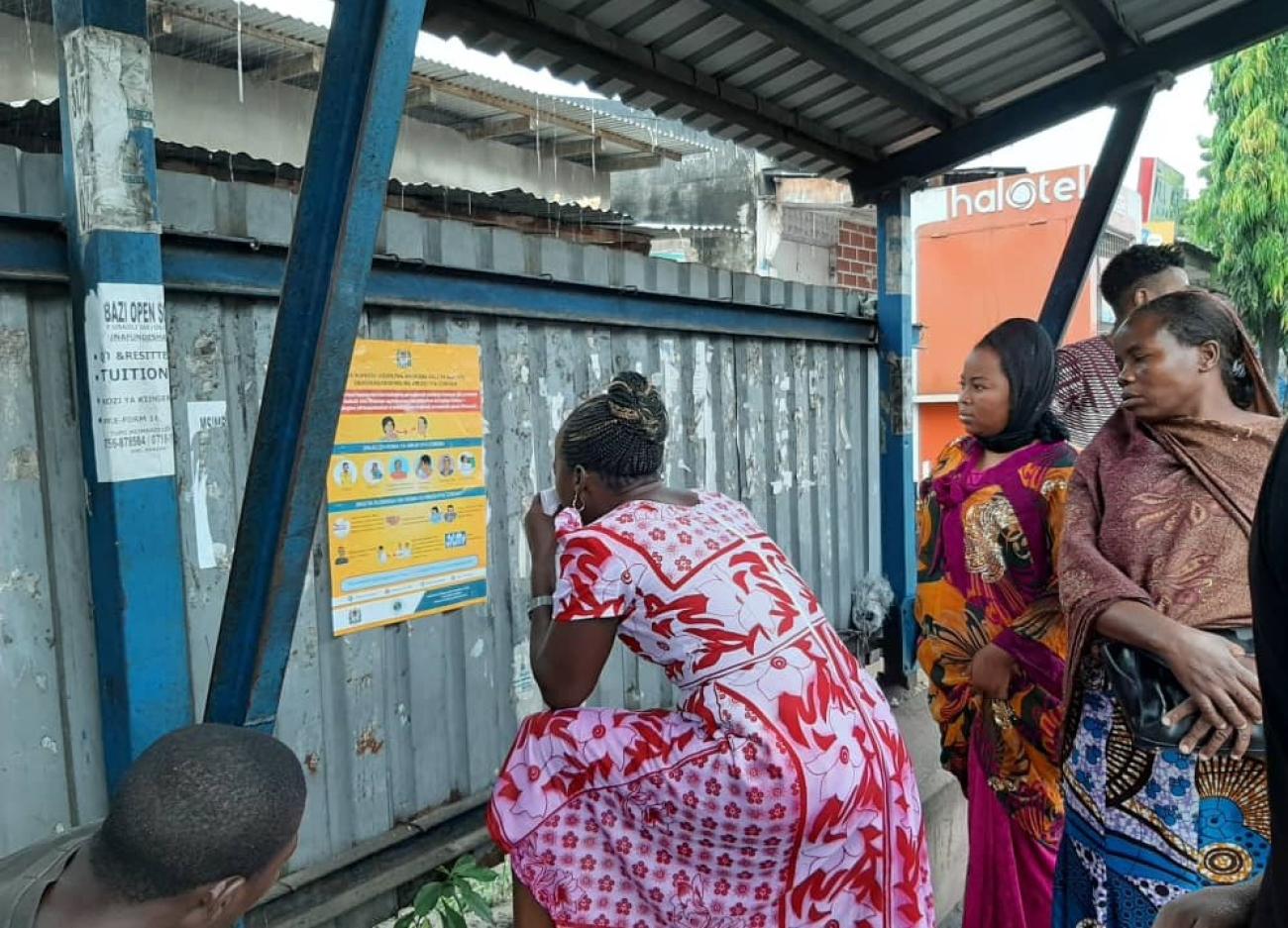UNICEF support provision of (PPEs) and help people protect themselves against Covid 19

To understand message reach and changes in knowledge, attitude and practice UNICEF has initiated an ongoing survey in 8 regions across mainland and Zanzibar.
As Tanzania is battling the COVID 19 pandemic, UNICEF is supporting the Government of Tanzania’s response by providing critical technical support to help to save lives and engaging multiple influencers from faith leaders, to media and online influencers as advocates for key behavioural change to prevent the virus spread.
To ensure safety of health workers, UNICEF has ordered PPE kits and other emergency supplies worth US$ 550,000 that are expected in country before May ends. Additionally, locally procured PPE kits worth US$ 910,000 will be available in early June.
As co-chair of the Risk Communication and Community Engagement (RCCE) pillar group with the Ministry of Health, Community Development, Gender, Elderly and Children, UNICEF have helped bring together over 70 partners to join forces (local and international CSOs, professional associations, bilateral organizations and UN agencies) in Tanzania mainland and Zanzibar.
Through RCCE, UNICEF has supported the Government to roll out a national mass media campaign with key targeted prevention messages including to the most vulnerable. Around 120 different contents reached 15 million people in their homes through national and community radio, TV and live media. Social media platforms, and the engagement of celebrities and online influencers continue to reach a further 3-4 million audiences every week.
To understand message reach and changes in knowledge, attitude and practice UNICEF has initiated an ongoing survey in 8 regions across mainland and Zanzibar. While U-Report SMS polls and WhatsApp complement the myth tracking system to inform improvements to ongoing intervention.
Partners such as the Tanzanian Red Cross are helping UNICEF support community-based activities in major cities in which around 10,471,594 people (59%) out of a total population of 17,682,684 have been reached, while motorbikes and megaphones have been used to reach hard areas especially during this rainy season.
UNICEF is supporting community-based surveillance in high-risk regions in Mainland through training of Community Health Workers (CHWs) who will be mobilized from mid-May. And through UNICEF support, 192,288 refugees in three camps of Nyarugusu, Nduta and Mtendeli are practicing hand-washing following the distribution and installation of buckets
and liquid soap. The hard work of the C4D team from all sections within the RCCE Pillar structure has ensured important issues such as child protection, VAC, GBV are addressed, expertise and resources such as WASH are utilised, and the needs of marginalized groups are not overlooked with the RCCE response.
Capitalizing on the influence of religious leaders as a powerful channel to promote COVID-19 prevention messages, guidance on safe worship practices and safe and respectful burial, thoughtful advocacy with Christian and Muslim faith leaders resulted in worshipping from home, handwashing and physical distancing being promoted. The two webinar sessions with Muslim and Christians leaders in Tanzania, Africa and India have generated solid leadership commitments to step up and advocate across their worshippers and communities at large.


